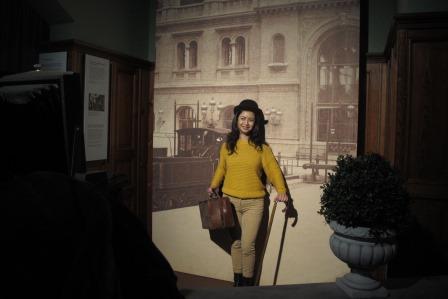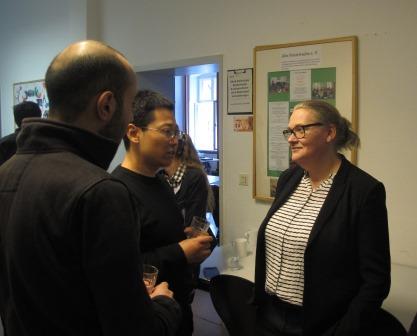Her explanations opened the seminar “Photography: Images and their Effects” which took place in Berlin from March 9th to 12th, 2020 (led by Dr Heinrich Geiger and spiritually accompanied by the priest scholarship holders of the Albertus Magnus Programme from Benin and Nigeria). Reichle’s presentation showed very clear how the history of the “world as a picture” ranges from cosmological models of the ancient world to the modern computer-generated visualisations in life sciences. The 32 participants of the seminar learned that this history is not only one of changing worldviews, but at the same time also one of changing methods of representation and different carrier media. This was the point at which the President of the Association Internationale des Professeurs de Philosophie, Dr Gabriele Osthoff-Münnix, took up at the second day of the seminar. After a lecture on the symbolic level of images, she opened up the intercultural dimension of the topic in dialogue with the participants. It was discussed that images in general – and photographs in particular – are not beyond dispute in many cultures. The ban on images in Judaism and in Islam – depending on the level of fundamentalism – evokes rejection: the living must not be depicted, and certainly not the sacred. A lively discussion arose in this context.
Visits of the exhibition „Film and Photo Technology” in the German Museum of Technology and the Museum for Photography rounded off the seminar. They illustrated which changes the photography has undergone since its birth in 1839. Among other things, the participants of the seminar were able to deal with visual classification systems when looking at the images in the museums. They learned that there have always been cross-cultural, international, transnational readable images. However, they also realised that the greater accessibility of photographs means that local cultures with their specific perception and presentation of the world are increasingly coming into focus. All in all, it was a successful and very well evaluated seminar which prevented one danger: to be an illiterate of a future in which photographs will play an increasingly important role.





